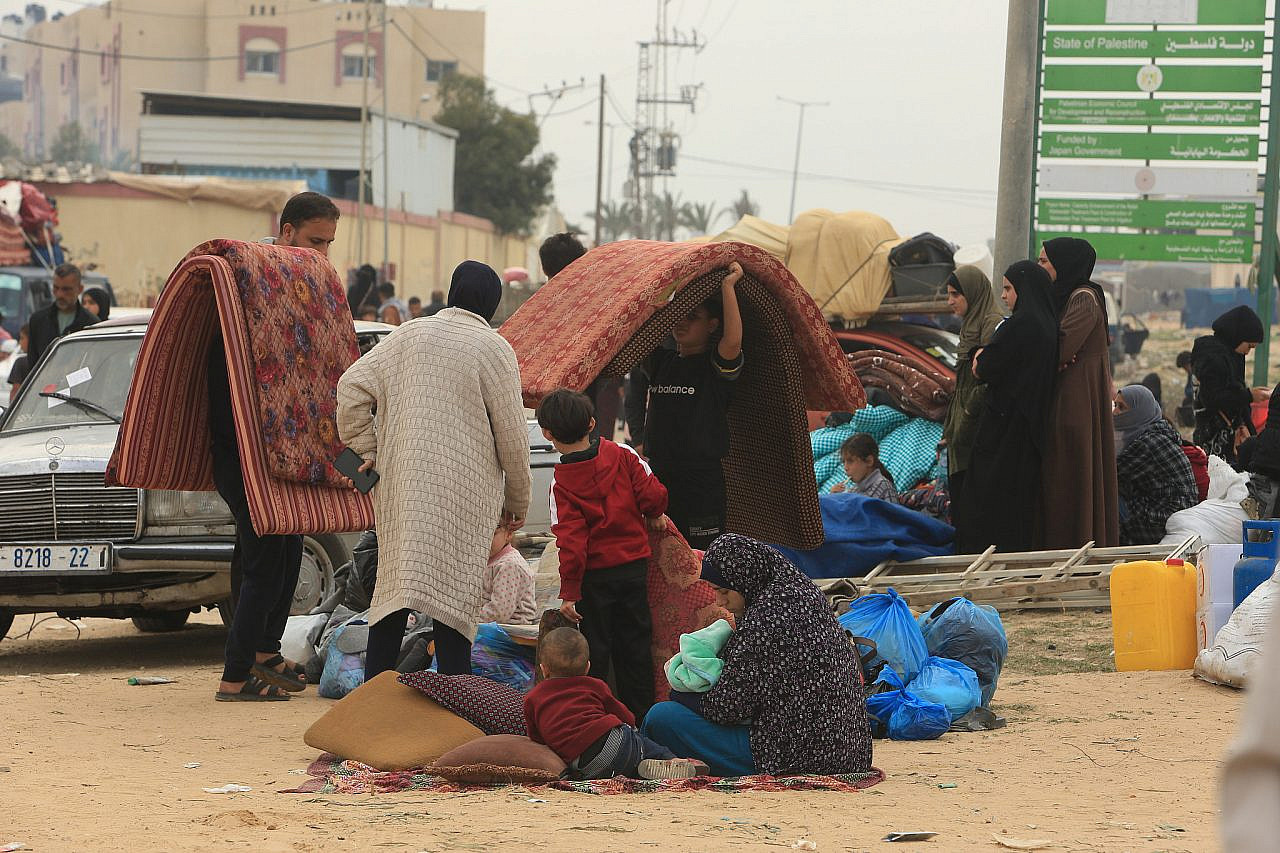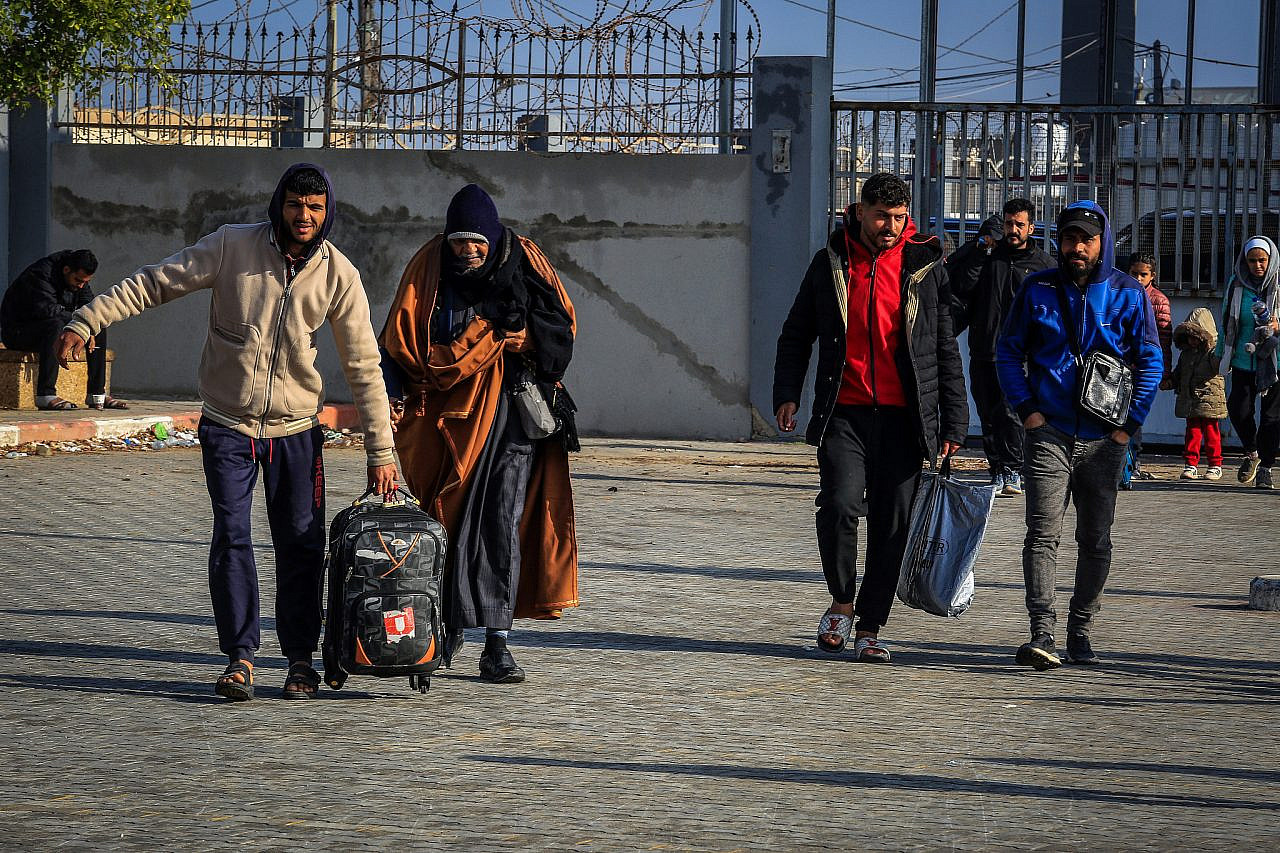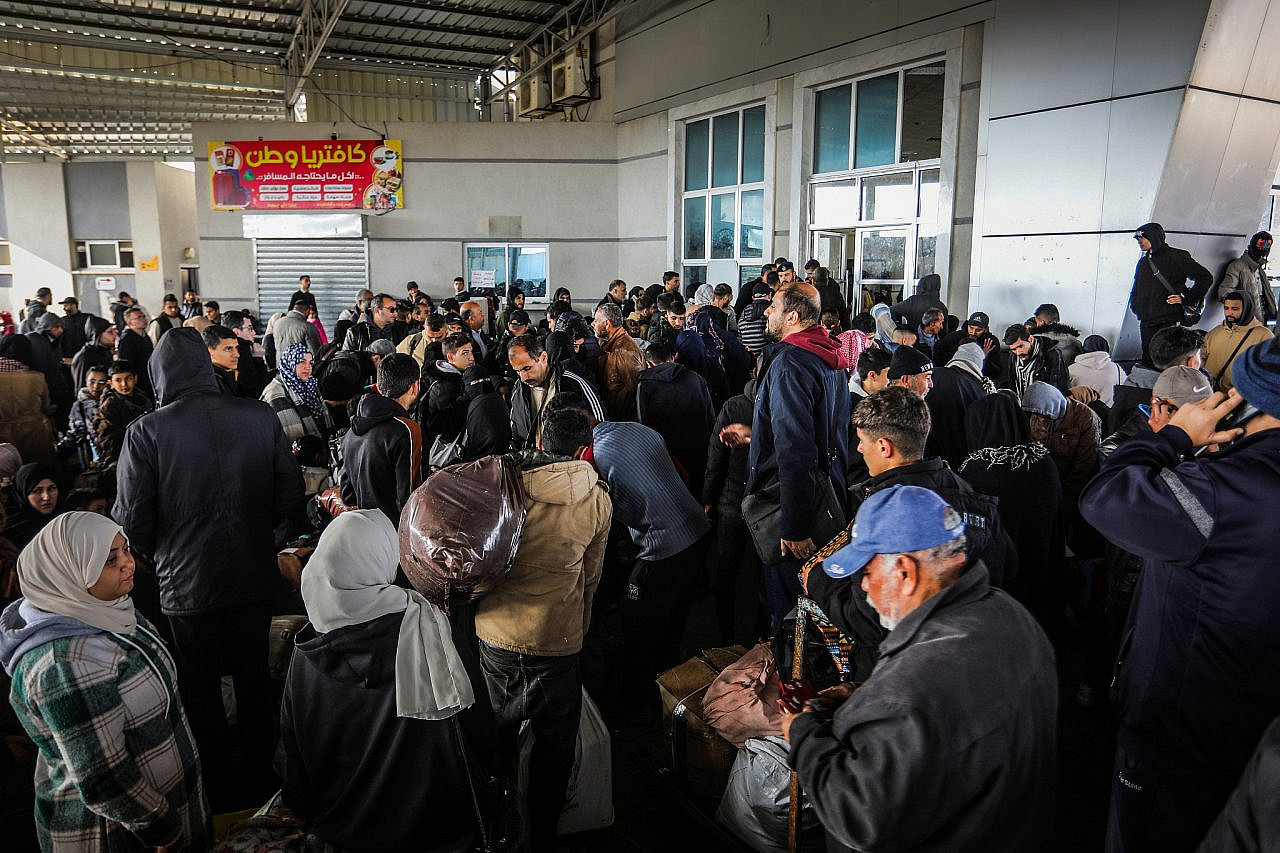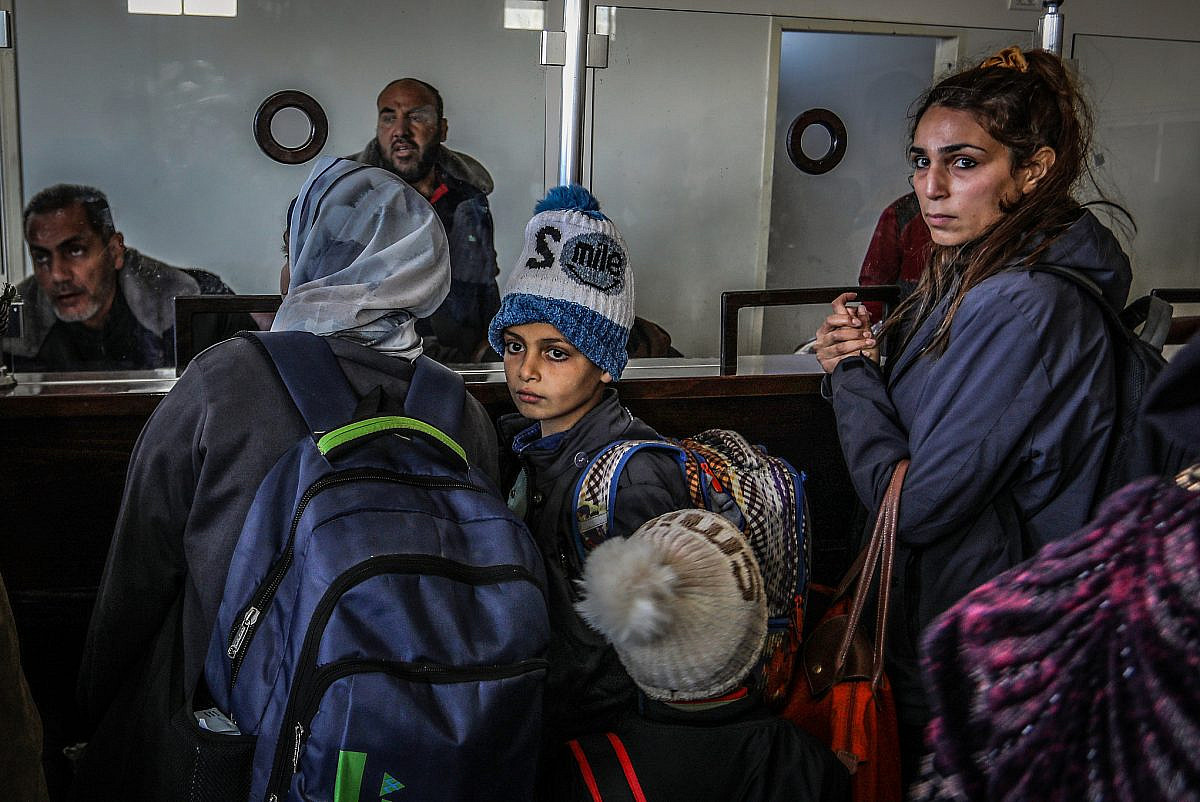After months of a war like no other in Gaza — a war of endless bombing, displacement, hunger, and thirst — those who have lost hope of finding safety in the Strip are desperately trying to find a way out. But escaping death in Gaza comes at a very high price — one that most Palestinians are, quite literally, unable to afford.
For Palestinians who hold foreign passports, getting out of Gaza has been relatively feasible. Since the beginning of the war, numerous governments have asked Egypt to open the Rafah Crossing in the south in order to facilitate the safe passage of these dual citizens (the Erez Crossing into Israel from Beit Hanoun in northern Gaza has been closed by the Israeli authorities since October 7.) After weeks of pleading and diplomatic efforts, hundreds of dual citizens have been able to slowly leave Gaza, hoping to return once hostilities end.
But more than 2.2 million Palestinians remain stuck inside the Strip, living under bombardment and siege with no foreign government to help them. To have their names added to the daily list of people permitted to exit through Rafah, these residents are being forced to pay exorbitant fees to one of the private travel agencies in Gaza or Cairo, which then work with Egyptian security forces to coordinate their flight from the Strip.
Before the war, travel was usually only permitted for medical treatment, education, or employment, while a small minority who could afford to would also pay high fees in order to leave for leisure. The cost of crossing the border alone was around $50, and travel agencies often charged several hundreds of dollars to expedite the process. Now, however, travel agencies have begun charging upward of $5,000 to coordinate the exit of each individual. And for the hundreds of thousands of Gazans who’ve been left with only the clothes on their back after being displaced multiple times during the war, such fees are a pipe dream.
Reem Awadallah, a 35-year-old mother from Gaza City, has been displaced to the city of Khan Younis in the south of the Strip since mid-October. “We have no friends or relatives here,” she said. “I came to the school [which is now functioning as a shelter], but I am looking for a chance to leave Gaza. I want to escape death with my daughter, and I will return to Gaza when this madness stops.

“I have a brother in Germany who tried to submit a request for us to leave through Rafah, but the request was denied; only requests for one’s mother or father are allowed, according to the German embassy,” Awadallah continued. “So I started looking for other ways to leave — through travel agencies.
“They asked us for $4,500, which was a very large amount,” she recounted. “After several consultations with my family, we agreed to pay it in order to get out of this death trap. But when we asked the agency to coordinate our exit from Gaza, they asked me for $6,000 each [for Awadallah and her daughter], which we couldn’t afford. So we surrendered to our situation — we will wait for the war to end, or until we find a travel agency that will take a smaller amount.”
Awadallah’s daughter, Sarah, is 11 years old. “She often jokes with me that we are in a place with no water or food, and it’s like going camping in a desert,” Awadallah said. “Sarah spends a lot of her time silently just looking around. My brother from Germany tries to console and support us, telling us that we should remain strong, but it’s so painful that [we don’t have the] right to travel. We need a lot of money in order to escape this hell, even for a few days.”
‘The agencies are not alleviating our suffering, they are making it worse’
Several travel offices in Khan Younis and Rafah told +972 that a major reason for this price hike is the demands from Egyptian authorities. During wartime, they said, the price of coordinating with Egypt for travel through the Rafah Crossing ranges between $2,000 and $6,000 dollars per person, and this amount is split between Egyptian security forces and the offices in Gaza (in normal circumstances, the price would range from $200 to $1,000 depending on the travel season, according to one office).
The agencies also noted that there is currently a massive demand from Palestinians to travel, many of them seeking urgent medical treatment. But even if residents could theoretically afford to pay the high cost, many of them have left their homes and much of their money behind while escaping the Israeli bombardment.

Khaled al-Atrash was displaced with his wife and four children from Jabalia in the north of the Strip. They came to Rafah specifically, al-Atrash said, to be close to the border crossing. “I was traveling in Egypt for a month with my children [over the summer], and we returned for their schooling,” he explained. “I tried to travel again [after the war began]; they asked us to pay $5,000 each. We are six people: $30,000 dollars in order to leave Gaza. This is impossible.
“My house was completely destroyed, and I already spent a large amount to travel [last summer],” al-Atrash continued. “How will we save this much? [The travel agencies] are not alleviating our suffering, they are only making it worse for us. We try every day to escape. I go to Rafah with a friend of mine and we try to make plans together, and every day we search for a travel agency that will take a lower amount.”
Even if the public demand for such services has skyrocketed as a result of the war, for al-Atrash, these private companies were taking advantage of the desperate situation. “Last summer, I left Gaza with my family to relax after a long school year. We paid the travel agency $500 dollars per person. During the summer, prices are a little high, but nothing like what they are charging now. It’s an exploitation of our need to travel.
“We do not know how to live in this war — there’s no shelter here and we cannot leave,” he said, exasperated. “We do not want to leave Gaza permanently, only temporarily, until the war ends. I have four children whose mental and physical health are deteriorating. The cold is terrible. There is no food. There is little medicine in Gaza. And what’s most painful is the restriction on our travel and their exploitation of us.”

Laila Rizk is a 22-year-old student from Gaza City. She was studying in Egypt but returned to Gaza to visit her family a few weeks before the war began; she was supposed to return to Egypt in mid-October, but has been unable to.
“I tried several times to ask the university to coordinate my travel through the Rafah Crossing, but there was no response,” she explained. “Then I went to a travel agency to coordinate and expedite my exit from Gaza, but they asked me for $4,000 and told me that if I left successfully, I would have another $2,000 left to pay.
Most read on +972
“I couldn’t believe this amount,” she continued. “It’s more than the fees I pay for university. And there were a number of offices that were dishonest with travelers and did not register their names on travel lists at the Rafah Crossing [so they were unable to leave].”
The result of these bureaucratic and financial barriers are thus just as consequential as the physical ones, rendering escape impossible and reinforcing the reality, in the words of al-Atrash, that “we live in a prison.”




